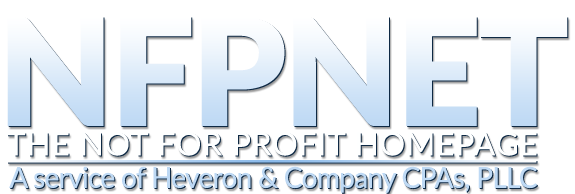Advocacy vs. Lobbying
Advocacy is allowed and encouraged; lobbying by charities is permitted but restricted; and political campaign involvement by nonprofits is prohibited, so it is important to be clear on definitions and implications of each, especially as we go into a time of heated primaries and elections.
The Alliance for Justice defines advocacy as:
“While all lobbying is advocacy, not all advocacy is lobbying.Advocacy is any action that speaks in favor of, recommends,
argues for a cause, supports or defends, or pleads on behalf of others. It includes public education, regulatory work, litigation, and
work before administrative bodies, lobbying, nonpartisan voter registration, nonpartisan voter education, and more.”
Advocacy, therefore, is broad—encompassing just about every form of communications a nonprofit can do. Lobbying, on the other hand, is very narrowly defined.
Lobbying is defined as:
Communicating with decision-makers (elected officials, their staff, and voters) about existing or potential legislation, and urging a vote for or against.
All three components of this definition are required :
decision makers, actual legislation , and asking for a vote.
Lobbying is further broken down into:
- Direct lobbying: Any attempt to influence new or existing legislation via communication with a member of the legislative body or other government representative who has a say in the legislation.
- Grassroots lobbying: Asking the general public to contact their legislator and/or mobilizing the public around a legislative issue. It must be specific legislation already introduced or proposed. It must also reflect the organization’s view on the legislation and encourage action. Examples of grassroots lobbying include: creating an online petition to generate public support for a cause, distributing flyers, and organizing a public demonstration or rally.
Member Communications:
Communications directed only to your members, which may reflect the organization’s view on specific legislation (but does not encourage members to get involved in direct lobbying or grassroots lobbying), is not considered lobbying.
Our tax code has guidance for determining how much is “too much” lobbying. The 501(h) election permits charities to expend certain amounts of money to lobby, based on their total expenditures.
Charities can submit IRS form 5768 and be allowed to utilize funds toward lobbying using a sliding scale based on their annual exempt purpose expenditures. There are different limits for direct lobbying and for grassroots lobbying.
Limits are based on the size of the organization and may not exceed $1,000,000, as indicated in the table below.
If the amount of exempt
purpose expenditures is: Lobbying nontaxable amount is:
≤ $500,000 20% of the exempt purpose expenditures
>$500,00 but ≤ $1,000,000 $100,000 plus 15% of the excess of exempt purpose expenditures over $500,000
> $1,000,000 but ≤ $1,500,000 $175,000 plus 10% of the excess of exempt purpose expenditures over $1,000,000
>$1,500,000 $225,000 plus 5% of the exempt purpose expenditures over $1,500,000
Should Charities Elect?
As the IRS website points out: “Under the expenditure test, the extent of an organization’s lobbying activity will not jeopardize its tax-exempt status, provided its expenditures, related to such activity, do not normally exceed an amount specified in section 4911.”
We have been working with charities for 50 years and have never seen an election result in an audit or any sanctions.
When to File
Organizations electing to file the 501(h) election must submit form 5768 at any time during the tax year for which it is effective. The election remains in effect until revoked by the organization. Revocation is effective at the beginning of the next fiscal year.
What Happens if You Exceed the Limits?
Exceeding these amounts over a four-year period can result in loss of your tax-exempt status , making it a taxable organization.
Charities exceeding the limits in any one year must pay an excise tax of 25% of the excess.
There are a few very limited exceptions that don’t result in these sanctions; for example, when a charity lobbies for, or against, legislation that would impact its existence.
Private foundations, churches, and certain other religious organizations are not permitted to make the election.
Political Campaign Activities
Charities should not engage in “political campaign activities.” If they do, IRS regulations state the charitable nonprofit will lose its tax- exempt status.
Additionally, charities cannot make contributions to political candidates or political parties.
However, charitable nonprofits may engage in voter registration and voter engagement activities; such as get out the vote efforts.



